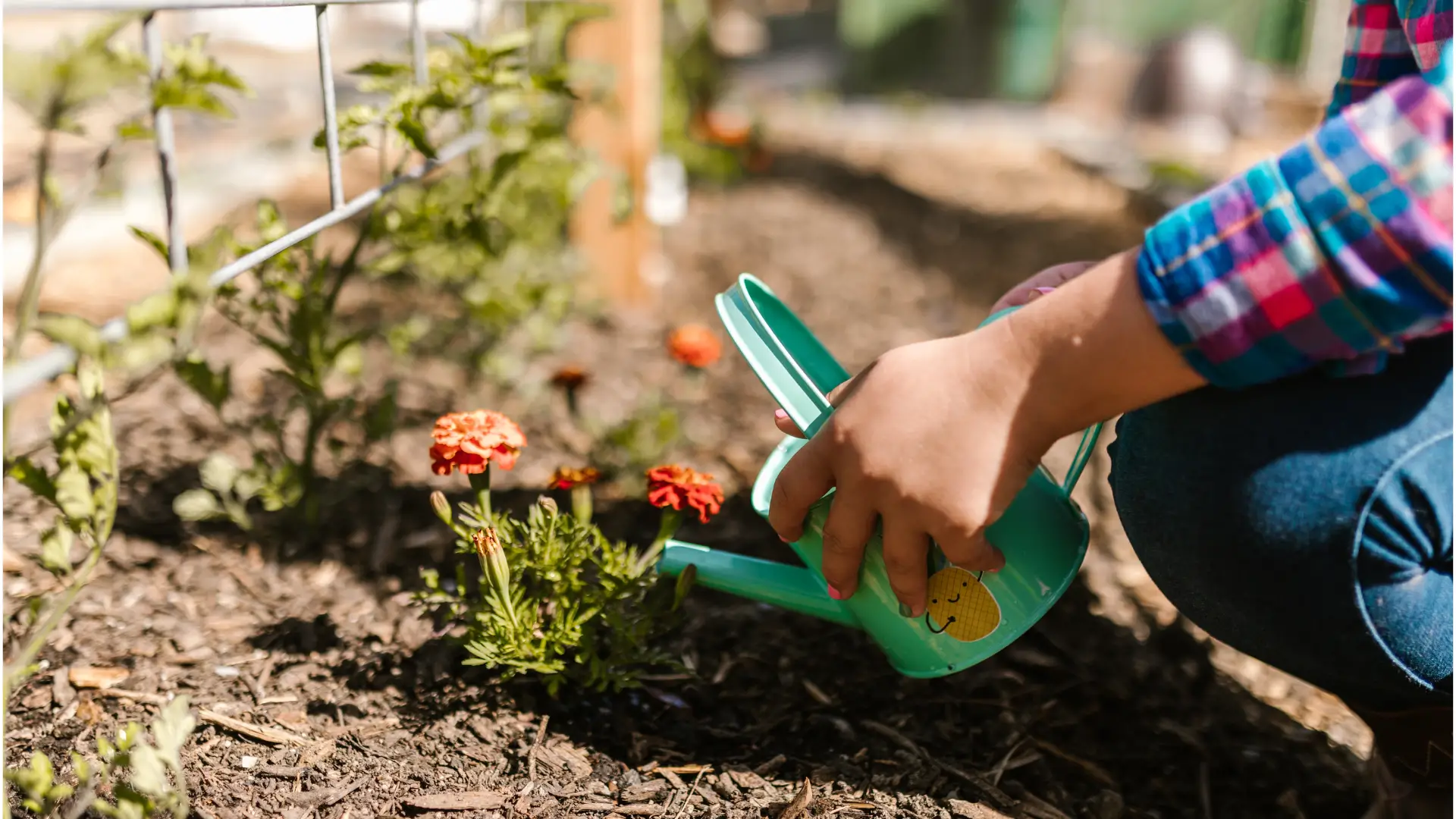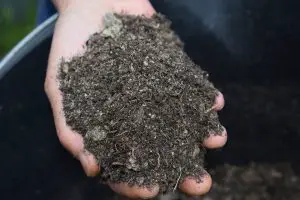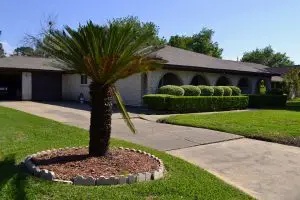USE OUR INTERACTIVE MAP BELOW THAT AUTOMATICALLY FINDS ALL THE MULCH STORES NEAREST YOU!
To find a Mulch Store Near you, simply use the map provided above. It will display all the relevant results automatically. Just tap on the markers to view the store details.
If you’re using a mobile device, make sure to have your GPS turned on for the best results. If you need help turning on your GPS, click here for iPhone instructions or here for Android instructions.

How To Choose a Mulch Store Near Me?
To choose a mulch store near you, make sure to check the variety of available mulch, the store’s reputation, the location, prices, and bulk discounts. You should consider a few more things to ensure you get the best quality products and services.
Here are some tips to help you choose a mulch store near you:
- Check the variety of mulch products available: A store that offers a wide range of mulch products, such as different types of wood mulch, pine straw, and other organic mulches, is more likely to have something that meets your needs.
- Consider the store’s reputation: Look for reviews online or ask friends and neighbors for recommendations. A store with a good reputation is more likely to provide high-quality products and excellent customer service.
- Consider the store’s location: Choose a store that is convenient for you to access. If you have a large property, you may want to consider a store that offers delivery services.
- Check the prices: Compare the prices of different stores to ensure you’re getting the best deal. Keep in mind that cheaper prices don’t always mean lower-quality products.
- Ask about bulk discounts: If you need a large amount of mulch, ask about bulk discounts. Many stores offer discounts for large orders to encourage customers to buy in bulk.
Overall, choosing a mulch store near you requires some research and consideration. By taking the time to consider these factors, you can find a store that meets your needs and provides high-quality products and services.
Types of Mulch Available on the Market
There are several types of mulch available on the market, each with its own unique properties and benefits. Some of the most common types of mulch include:
- Wood chips or bark: These are made from the bark of trees and can be made from a variety of different species, such as pine, cypress, or cedar. Wood chips or bark mulch is long-lasting and provides a natural look to your landscape.
- Compost: Compost is made from decomposed organic matter and can be used as mulch in your garden. It helps to improve soil structure and fertility, making it an excellent choice for vegetable gardens and other areas where you want to promote healthy plant growth.
- Straw: Straw mulch is made from dried grasses and is often used in vegetable gardens to help retain moisture and suppress weeds. It is an inexpensive and natural mulch option.
- Pine straw: Pine straw is made from the needles of pine trees and is often used in landscape beds and around trees and shrubs. It has a natural look and is good at retaining moisture.
- Rubber mulch: Rubber mulch is made from recycled tires and is a long-lasting, low-maintenance mulch option. It is often used in playgrounds and other areas where safety is a concern. (Nearest Rubber Mulch Store Locations)
- Rock or stone: Rock or stone mulch is made from crushed rocks and is often used in areas with poor drainage or in xeriscapes. It is low maintenance and long-lasting, but may not be as effective at retaining moisture as other types of mulch.
What is the Average Cost of Mulch?
The average cost of different types of mulch can vary, with some types being more expensive than others, but mulch cost will generally range from $20 to $80 per cubic yard. Here is a general idea of the average cost of different types of mulch:
- Wood chips or bark: Wood chips or bark mulch is typically one of the most affordable options, with prices ranging from $20 to $50 per cubic yard.
- Compost: Compost mulch can vary in price depending on the source and quality of the compost. On average, you can expect to pay between $20 and $40 per cubic yard.
- Straw: Straw mulch is generally inexpensive, with prices averaging around $20 to $30 per cubic yard.
- Pine straw: Pine straw mulch tends to be more expensive than other types of mulch, with prices averaging around $30 to $50 per cubic yard.
- Rubber mulch: Rubber mulch is typically one of the most expensive options, with prices ranging from $40 to $70 per cubic yard.
- Rock or stone: Rock or stone mulch can vary in price depending on the type and size of the stones. On average, you can expect to pay between $40 and $80 per cubic yard.
Keep in mind that these are just rough estimates, and prices may vary depending on your location and the supplier. It’s always a good idea to shop around and compare prices to get the best deal.
Why use Mulch?
There are several benefits to using mulch, which include:
- Moisture retention: Mulch helps to retain moisture in the soil, reducing the need for frequent watering and helping plants to survive during dry spells.
- Soil temperature regulation: Mulch helps to regulate the temperature of the soil, keeping it cooler in the summer and warmer in the winter. This can help to protect roots and promote healthy plant growth.
- Weed control: Mulch helps to suppress weed growth by blocking sunlight and preventing weed seeds from germinating.
- Soil erosion prevention: Mulch helps to prevent erosion by holding the soil in place, especially on slopes and other areas that are prone to erosion.
- Aesthetics: Mulch can also improve the appearance of your landscape by adding a clean, finished look to your garden beds and other areas.
Overall, mulch is an important tool for maintaining the health and appearance of your landscape. It helps to protect your plants and soil, saving you time and effort on maintenance.
What Are Common Mulch Applications?
Common mulch applications include garden beds, around trees and shrubs, in playgrounds, pathways, and landscaped areas. Mulch is often used in a variety of applications to improve the health and appearance of landscapes. Some common mulch applications include:
- Garden beds: Mulch is often used in garden beds to help retain moisture, suppress weeds, and improve the appearance of the area.
- Around trees and shrubs: Mulch can be used to create a protective layer around the base of trees and shrubs to help retain moisture, regulate soil temperature, and suppress weeds.
- Playgrounds: Rubber mulch is often used in playgrounds to provide a soft, safe surface for children to play on.
- Pathways: Mulch can be used to create natural-looking pathways through gardens and other landscaped areas.
- Landscaped areas: Mulch is often used to create a finished look and add visual interest to landscaped areas.
Overall, mulch has a wide range of uses in landscaping and can be an important tool for improving the health and appearance of your landscape.
Mulch Colors: 6 Common Options
Here are some common options when it comes to mulch colors:
- Black: Black mulch can add a sleek, modern look to your garden and can help to highlight plants and other features in your lawn.
- Red: Red mulch can add a bold, vibrant look to your garden and can help to draw attention to plants and other features.
- Brown: Brown mulch can add a natural, earthy look to your garden and can help to blend in with a variety of plant and landscaping styles.
- Gold: Gold mulch can add a warm, sunny look to your garden and can help to highlight plants and other features.
- Green: Green mulch can add a fresh, vibrant look to your garden and can help to blend in with a variety of plant and landscaping styles.
- Cedar: Cedar mulch has a distinct, refreshing scent that can help to naturally repel insects and add an attractive aroma to your garden.
How Much Mulch Material Do I Need?
To calculate how much mulch you need for your landscape, you’ll need to know the size of the area you want to cover and the desired depth of the mulch.
Here’s a general rule of thumb for calculating the amount of mulch you need:
- Measure the length and width of the area you want to mulch, in feet.
- Multiply the length by the width to get the total square footage of the area.
- Divide the total square footage by the coverage rate of the mulch you’re using. The coverage rate is the number of square feet that one cubic yard of mulch will cover at the desired depth. For example, if you want to mulch an area to a depth of 3 inches and the coverage rate of the mulch is 100 square feet per cubic yard, you’ll need 0.25 cubic yards of mulch for every 100 square feet.
- Multiply the total square footage by the coverage rate to get the number of cubic yards of mulch you need. For example, if you want to mulch a 200-square-foot area to a depth of 3 inches with a coverage rate of 100 square feet per cubic yard, you’ll need 0.5 cubic yards of mulch.
Keep in mind that these are just rough estimates, and the actual amount of mulch you need may vary depending on the size and shape of your landscape. It’s always a good idea to purchase a little extra mulch to ensure you have enough to cover the entire area.